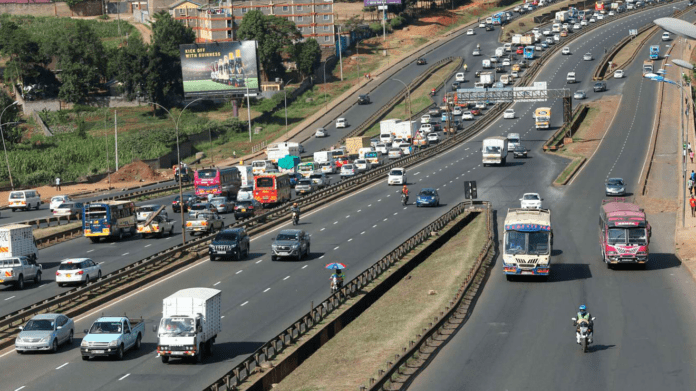Motorists should brace for increased expenses as the government moves to reintroduce taxes on vehicle insurance premiums and urban congestion.
The Ministry of Transport has revived these plans in its newly unveiled National Tolling Policy, which seeks to raise funds for road construction and maintenance. This comes after earlier proposals for similar taxes were abandoned due to strong public resistance.
The draft policy, released on Tuesday, proposes multiple revenue-generating measures, including an insurance premium tax, congestion levy, an increase in the fuel levy, and the introduction of new road tolls.
“To ensure sustainable road financing, the policy recommends an increase in the fuel levy, the implementation of road tolls, the ‘polluter pays’ principle, and a tax on insurance premiums, with the remaining funding sourced from the exchequer,” the document states.
Traditionally, fuel taxes have been a key source of infrastructure funding. However, as more fuel-efficient and electric vehicles hit the roads, revenue from fuel levies has declined. The government is now exploring alternative ways to close the funding gap.
According to sector projections, Kenya will face a Sh4.05 trillion shortfall in road infrastructure financing over the next ten years.
Currently, the road maintenance levy, which was increased from Sh18 to Sh25 per litre of petrol and diesel, generates about Sh132 billion annually—far below the estimated Sh253.5 billion needed each year for proper road upkeep.
One of the major proposals is the insurance premium tax, initially introduced in the Finance Bill 2024. It suggested a 2.5 percent charge on vehicle insurance premiums, with a minimum fee of Sh5,000 and a cap of Sh100,000.
Following widespread public backlash, the plan was shelved, but it is now being reconsidered as part of the government’s long-term road funding strategy.
In addition to the insurance tax, the congestion levy is set to target high-traffic cities such as Nairobi, Mombasa, Kisumu, Eldoret, and Nakuru. Similar to congestion charges in cities like London and New York, this tax would be imposed on vehicles entering designated busy zones to reduce traffic and generate revenue.
While the draft policy does not specify exact charges, it signals a move toward tolling across the national road network.
The policy also outlines a vehicle classification system that will categorize automobiles into 12 groups, including motorcycles, private cars, mini-buses, and trucks, to determine applicable charges.
To avoid excessive administrative costs, the government has indicated that tolls will only be implemented where the cost of collection remains below 15 percent of the expected revenue.
While officials argue that these measures are crucial for sustainable road maintenance, they are expected to face resistance from motorists and industry stakeholders.
A previous attempt to impose the insurance premium tax was met with widespread protests, forcing the government to drop the plan. Likewise, congestion charges have been controversial, with concerns that they could disproportionately affect lower-income drivers who rely on personal vehicles for work and business.
The government’s push for these taxes aligns with ongoing efforts to expand road tolling projects. While tolls are already being considered for key highways, these new charges could extend the system to more roads across the country.





![SHA Suspends Dozens of Health Facilities Over Alleged Fraud [LIST]](https://citymirror.ke/wp-content/uploads/2024/12/image-14-218x150.png)

